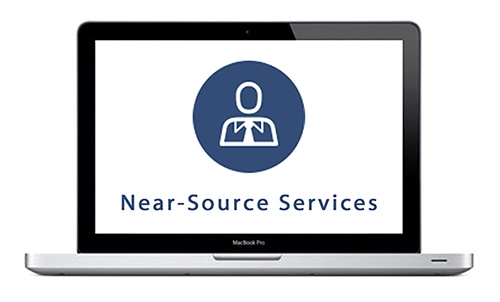With so many different IT security terms and concepts that you need to learn when running a business, where should you start? Diving into cybersecurity can be challenging, but learning about the most commonly used terms in IT security is a good place to start.
Most commonly used terms in cybersecurity explained
Working remotely? Follow these cybersecurity tips

Working from home is becoming an increasingly popular option for employees around the world. While this flexible work arrangement can be a great perk for employees, it also comes with its own set of security risks. Follow these cybersecurity tips so you can protect yourself, your personal information, and your company's data while telecommuting.
Why managed IT services is best for SMB cybersecurity

Without technology, businesses cannot compete and succeed. But with the advancement in technology comes the ever-constant threat of hackers and cybercriminals. That’s why small- and mid-sized businesses (SMBs) need to protect themselves with robust cybersecurity solutions managed by reputable managed IT services providers (MSPs).
The numbers
Through the years, the number of SMBs falling victim to cyberattacks has drastically increased.
Cybersecurity terminology you need to know

Do IT security terms like “phishing” and “intrusion protection” sound extremely foreign to you? If so, it’s time you familiarize yourself with these and other common cybersecurity terms. By learning these basic concepts, you’ll be more aware of the depth and scope of online dangers and, hopefully, be better prepared to deal with them.
Your business’s cybersecurity needs an MSP

With the prevalence of cyberattacks on companies of all sizes these days, businesses cannot afford to relegate cybersecurity to the bottom of their budget priorities. When it comes to cybersecurity, even small businesses should partner with a managed IT services provider (MSP). Here’s why it's crucial to partner with an MSP that can implement robust cybersecurity solutions for your business.
Potential IT security issues in 2016

As a small or medium-sized business owner or manager, it’s only to be expected that you want to keep your company safe from cyber attacks and hacking attempts. But how much do you really know about online safety? With massive corporations such as Sony falling victim to attack, cyber security has never been more in the public eye.
Malware and the Human Factor: The Role of User Education
Securing your business data is twofold. The first part entails having the right security software and security policies. The second is providing the right user training to your employees, making them more aware of the different scams and ploys used in socially engineered cyber-attacks. One of the things many people fail to realize is that securing business data from malware and other sorts of cyber-attacks doesn’t stop with implementing the right security software. These days, cyber-criminals also use all sorts of tricks to bait unsuspecting employees into being catalysts for malware entering your system. Reports cite that as much as 60 percent of cyber and malware attacks on businesses are done through social engineering – meaning that instead of a direct attack on your system, hackers are using ploys found on email and social networks to get people in your organization to unwittingly introduce malware into your IT infrastructure. This is why it’s equally important to put emphasis on training your employees to recognize common cyber-attack strategies such as phishing, or how to use proper virus scanning software so any external or thumb drives they plug into their computers are malware-free. Remember, it only takes one mistake from a gullible employee to open the gates of your system to keyloggers and other sorts of malware and viruses. Keeping your company’s IT system safe is an investment. Getting the right security protocols and then training your employees to not only use and respect these protocols but also be more aware about security risks goes a long way in keeping your data safe and your operations stable.
Security: Don’t be the Next Victim
Symantec recently released a study showing dire figures – at least 50% of SMBs out there have little to no disaster-preparedness plan, which if left unchecked can cost thousands of dollars in lost revenue. The risks are real enough, with an SMB standing to lose somewhere in the ballpark of $12,500 PER DAY when operations are interrupted because of security breaches or malware attacks. According to Symantec, of the 1288 SMBs they surveyed worldwide, about half have no security or disaster-preparedness plan whatsoever. Of that 50 percent, 36 percent intend to get or create a plan in the future, while the remaining 14% have no plans on their agendas whatsoever. With these figures, it’s hardly surprising that the study also found that many SMBs only act when it’s too late – which causes not only lost revenue for them, but for their clients as well. More than half of the surveyed SMB clients – 552 – said that they have had to switch providers due to unreliable and irresponsible service. Numbers do not lie: security is more important than you might think. Don’t wait until the last minute to find out just how essential it is before enacting a security plan of your own – for your sake as well as that of your clients. Having the right kind of system in place is vital to keeping your operations smooth and efficient, as well as enabling you to better respond to your clients’ needs. If you want to know more about implementing the proper security and disaster-preparedness protocols for your business, please contact us and we’ll be happy to sit down and create a customized plan that will meet your specific needs and requirements.


